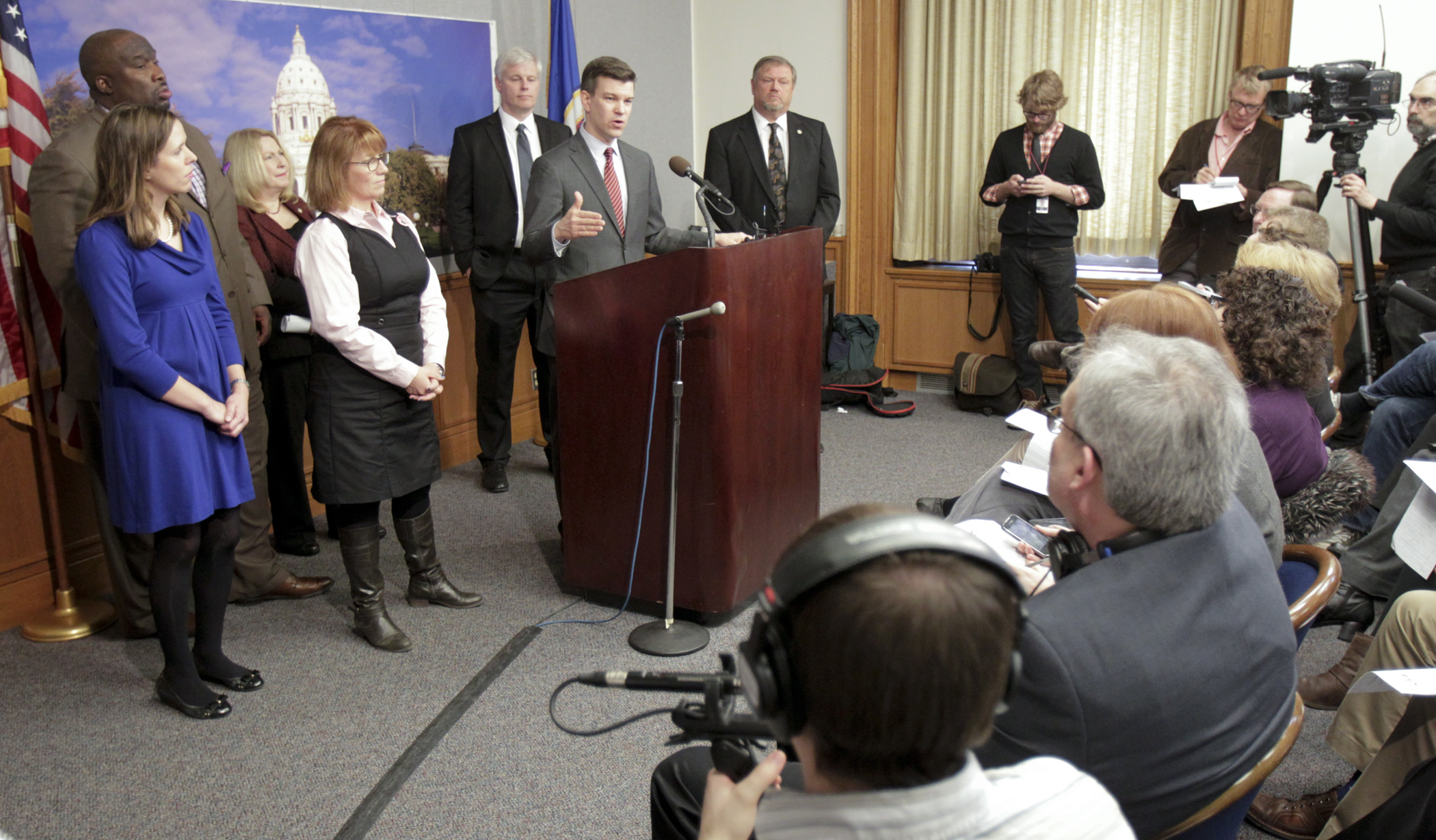Deal struck on minimum wage

After months of negotiation, Minnesotans could see their minimum hourly wage go up now that a deal has been struck between the House and the Senate. A vote in both bodies is expected this week.
During a Monday press conference, House and Senate leadership laid out a new agreement that would increase the state’s hourly minimum wage to $9.50, phasing it in by 2016. It would also be indexed for inflation beginning in 2018. The state’s current minimum wage is $6.15 per hour, but most businesses use the federal $7.25 rate.
“This is a good day for hard-working Minnesotans and for a brighter economic future for our state,” said House Speaker Paul Thissen (DFL-Mpls). “There are too many Minnesotans who work hard every day but cannot make enough to make ends meet. This is about making sure Minnesotans can earn a wage they can raise a family on. That’s what this bill is about. No one should work 40 hours a week and still live in poverty.”
If passed, the bill would give more than 350,000 Minnesotans a raise. To make the agreement possible, a 40-hour work week for overtime and 12-week unpaid sick leave provisions were removed.
“By raising the minimum wage to $9.50 and indexing it to inflation, we set a higher floor for all workers' wages, and ensure inflation does not erode those wages in the future,” Said Rep. Ryan Winkler (DFL-Golden Valley), who sponsors HF92 in the House
Lawmakers said the deal was not contingent on a plan to build a new $77 million legislative office building that would be used to house the Senate.
Details of the minimum wage agreement include:
- $9.50 minimum hourly wage for businesses with gross sales over $500,000 in 2016 after increases to $8 in August 2014 and $8.50 in August 2015;
- $7.75 minimum hourly wage for businesses under $500,000 in gross sales in 2016 after increases to $6.50 in August 2014 and $7.25 in August 2015;
- the $7.75 minimum hourly wage rate would also apply for large businesses in the following circumstances: 90-day training wage for 18 and 19 year olds, all 16 and 17 year olds and employees working under a J1 visa;
- beginning in 2018, all wages would increase each year on Jan. 1 by inflation measured by the implicit price deflator capped at 2.5 percent; and
- the indexed increase could be suspended for one year by the commissioner of the Department of Labor and Industry if leading economic indicators indicate the possibility of a substantial downturn in the economy. The suspension could only be implemented after a public hearing and public comment period. In better economic times, the suspended inflationary increase or a lesser amount could be added back into the minimum wage rate in a subsequent year.
Related Articles
Search Session Daily
Advanced Search OptionsPriority Dailies
Ways and Means Committee OKs proposed $512 million supplemental budget on party-line vote
By Mike Cook Meeting more needs or fiscal irresponsibility is one way to sum up the differences among the two parties on a supplemental spending package a year after a $72 billion state budg...
Meeting more needs or fiscal irresponsibility is one way to sum up the differences among the two parties on a supplemental spending package a year after a $72 billion state budg...
Minnesota’s projected budget surplus balloons to $3.7 billion, but fiscal pressure still looms
By Rob Hubbard Just as Minnesota has experienced a warmer winter than usual, so has the state’s budget outlook warmed over the past few months.
On Thursday, Minnesota Management and Budget...
Just as Minnesota has experienced a warmer winter than usual, so has the state’s budget outlook warmed over the past few months.
On Thursday, Minnesota Management and Budget...